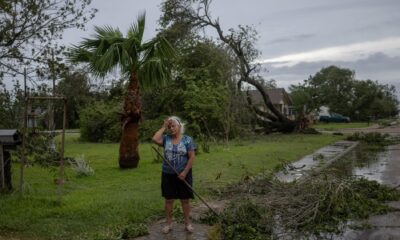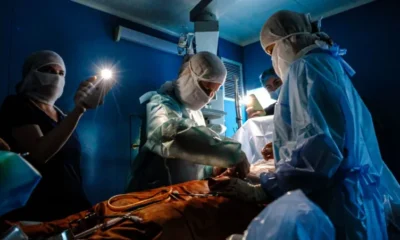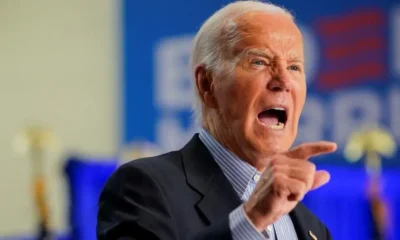Prime Minister Justin Trudeau is urging Canadians to take the first vaccine they’re offered, as Health Canada hits pause on giving the AstraZeneca jab to those under the age of 55.
On Monday, Canada’s National Advisory Committee on Immunization (NACI) issued the new guidelines due to concerns over reports of blood clots. While chief public health officer Dr. Theresa Tam called the move a “precautionary measure,” concerns about vaccine hesitancy bubbled up among experts.
Read more:
AstraZeneca COVID-19 vaccine not recommended for those under 55, NACI says
Still, Trudeau says Canadians should jump at the opportunity to receive any COVID-19 jab – including the AstraZeneca vaccine.
“The bottom line for Canadians is the right vaccine for you to take is the very first vaccine that you are offered,” he said, speaking in a press conference on Tuesday.


He acknowledged that the hesitancy surrounding the AstraZeneca vaccine is “certainly something that is on (the government’s) mind,” but that getting the population vaccinated is the key to containing the deadly spread of the virus.
“The more we get Canadians vaccinated, quickly and safely, the quicker we’ll be able to get back to a semblance of normality,” Trudeau said.
“With the variants that are more severe and more transmissible increasing around the population, we need to make sure we’re doing everything we can to get through this.”
Read more:
Why does AstraZeneca vaccine guidance keep changing? Experts weigh in
Speaking to Global News in an interview on Monday, experts explained that despite the fact that Health Canada hit pause on the AstraZeneca jabs for those under the age of 55, Canadians who are still allowed to get the vaccine should feel very safe doing so.
“You’re starting to get in the odds of, you’re going to get hit by lightning going to the vaccine appointment, (rather) than getting this complication,” said Dr. Zain Chagla, an infectious disease specialist.
“It’s not zero, but again, you live in a world where COVID-19 is rising, where, again, people’s complications are rising… this is a balance.”
He said for those over the age of 55, that balance is “way, way” in favour of getting the jab.


Trudeau reiterated that the shifting advice on the AstraZeneca vaccine is the result of changing science – and that for the public health officials making these decisions, the safety of Canadians stays firmly front of mind.
“As we get more and more data, experts are refining and shifting their recommendations,” Trudeau said.
“Canadians need to know that every step of the way, there is one thing driving all these experts, and that is keeping Canadians safe and getting through this pandemic as quickly as possible.”
Read more:
U.K. study underway to test COVID-19 vaccine mixing. Should Canada follow suit?
Tam added that while it may appear that the recommendations are jumping all over the place, the reality is they’ve always been “informed by the data at hand.”
For example, she said, AstraZeneca wasn’t approved for Canadians over 65 because there hadn’t been enough individuals in that age group included in the clinical trials – so they just didn’t know for sure that it was safe. Once real-world data came in for that age group from the U.K., it became apparent that the vaccine was indeed safe for those over age 65.
That’s why that recommendation changed, she said.


Tam said the new recommendation not to administer AstraZeneca to those under the age of 55 follows the same trend.
“This, again, is new data and it’s a precautionary approach for a rare event,” Tam said, acknowledging that the rare event is “serious.”
She said public health officials “want to be transparent” and that any vaccines that are put into Canadian arms “will be safe and effective for those populations” that they are approved for.
“So I think that’s really, really key,” Tam said.
“For Canadians, when the provinces offer you the vaccine, take the vaccine that you are provided.”
Meanwhile, Canada’s vaccine rollout is heating up. Procurement Minister Anita Anand explained on Tuesday that with a new, expedited timeline for millions of Pfizer doses, Canada is on track to receive at least 44 million COVID-19 vaccine doses by the end of June.
Read more:
Canada getting 5M Pfizer doses ahead of schedule in June, Trudeau says
In addition to that, Canada is going to start getting its shipments of the single-shot Johnson & Johnson vaccine at the end of April, officials confirmed Tuesday. Those doses were not included in the 44 million dose tally.
Canada’s population is just shy of 38 million. While all of the 44 million doses require two jabs for full immunization, Canada is focusing on rolling out an initial jab to as many Canadians as possible before worrying about the second vaccine dose.
“By end of June, we will be having more than 40 million doses of vaccine delivered to Canada. This would place us in a very good situation to say that, by the end of the summer, everyone would have received two doses,” Trudeau said on Tuesday, speaking in French.
“Depending on the distribution of the vaccines by the provinces, it is possible that many people will have received at least their first dose before the summer starts.”
Must See
-




Entertainment
/ 3 weeks agoFaveSzn’s Revelation: Dating Choirmaster at 10 and Sexual Curiosity
Nigerian singer, Chidozie Ugochinyere, popularly known as FaveSzn, has revealed that she once dated...
By Flying Eze -






Europe
/ 3 weeks agoWhy Hungarian Prime Minister Orban visited
Two months later, the leaders of China and Hungary met again. Hungarian Prime Minister...
By Flying Eze -






News
/ 3 weeks agoThree dead and millions without power as Tropical Storm Beryl hits Texas
Man, 53, and woman, 74, killed by fallen trees and third person drowns amid...
By Flying Eze



